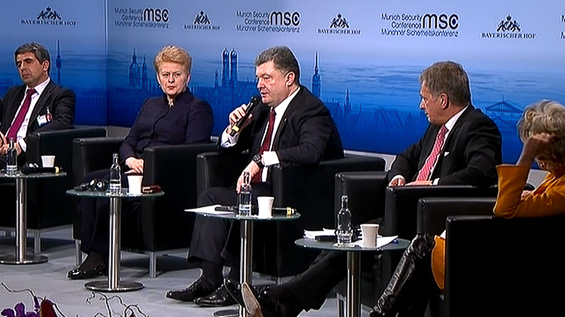
The Ukrainian crisis and its impacts on European security was the main theme of the Munich Security Conference that President of the Republic Sauli Niinistö attended on 6–8 February. ”The Ukrainian crisis has been a mental shock for all of us. Peace is not a given in Europe,” President Niinistö said, sitting on a panel of four presidents.
In addition to President Niinistö, the panel included Ukraine’s President Petro Poroshenko, President Dalia Grybauskaitė of Lithuania, and Bulgaria’s President Rosen Plevneliev.
The presidents were asked what they believe Putin’s objectives are in Ukraine. “I’m not sure if anyone is fully aware of what he is after. I do not believe there is a very logical plan; I think the main aim is to destabilise,” said President Niinistö.
“However, I do know what is not good: we must not let Russia violate international legislation and agreements without consequences. But not good is also to totally isolate Russia.”
In Munich, President Niinistö discussed the Ukrainian crisis with President Poroshenko and the German Chancellor Angela Merkel, among others. Chancellor Merkel arrived in Munich directly from Moscow where she met Russian President Vladimir Putin together with the French President Francois Hollande.
President Niinistö believes it is positive that there have now been face-to-face discussions. “Clearly, they do not want to give cause for great optimism. It is also equally clear that nothing has been lost,” he said, at a press conference at the end of the day.
A security policy forum with long traditions
This year, the theme of the Munich Security Conference was the collapse of international order. In addition to the Ukrainian crises, other themes included the situation in the Middle East and the fight against terrorism.
Following his arrival in Munich on Friday evening, President Niinistö held discussions with Jens Stoltenberg, Secretary General of NATO. Their meeting covered the development of Finland’s partnership with NATO, the regional security situation and responding to the threats of hybrid warfare.
President Niinistö also held discussions with Azerbaijan’s President Ilham Alijev on bilateral relations, the Ukrainian crisis and the situation in Nagorno-Karabakh.
Held since 1963, the Munich Security Conference is an independent forum dedicated to promoting peaceful conflict resolution and international cooperation, and dialogue on dealing with current and future security challenges. Over 400 foreign and security policy opinion-formers attended the conference, including around 20 heads of state or government and 60 ministers. The participants included German Chancellor Angela Merkel, US Vice President Joe Biden and Secretary of State John Kerry, and Russian Foreign Minister Sergey Lavrov.
Pictures
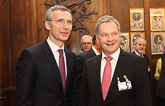 |
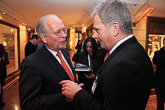 |
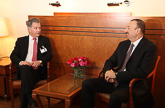 |
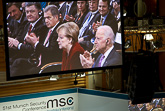 |
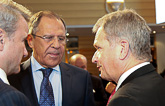 |
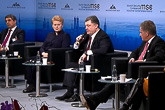 |
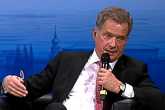 |
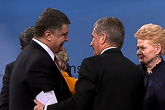 |
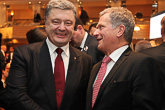 |
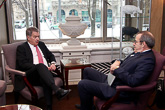 |
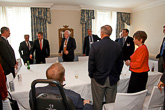 |
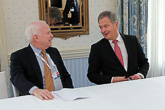 |

